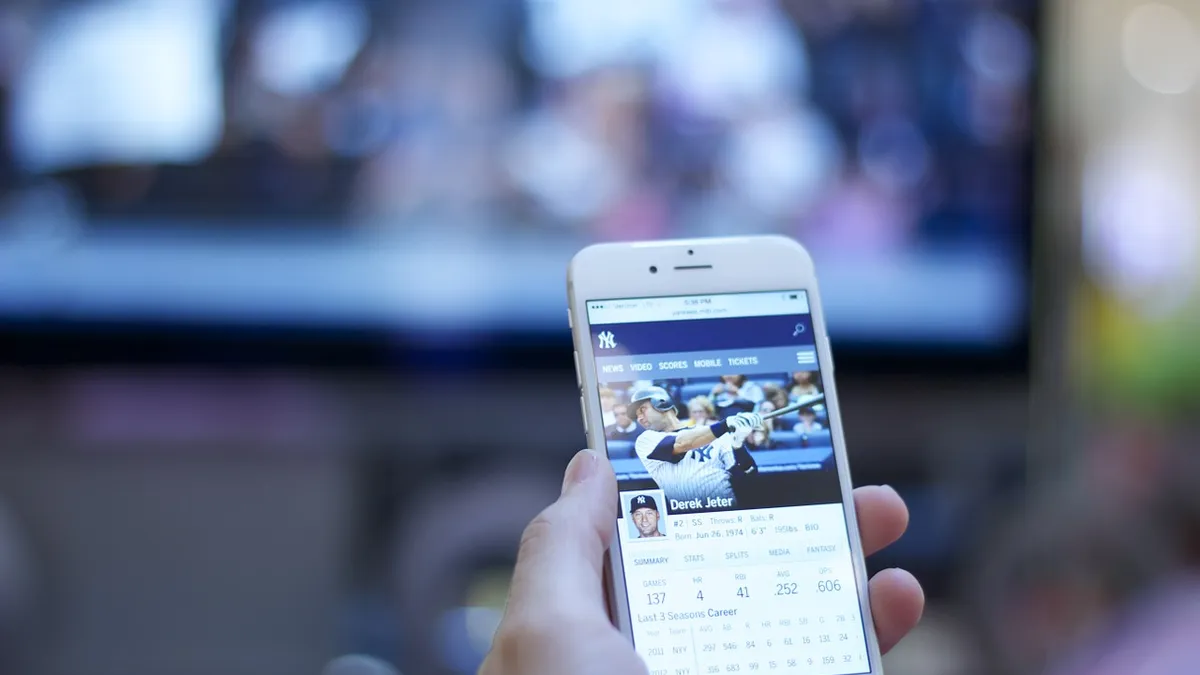Dive Brief:
- Nielsen released a solution for cross-platform audience measurement that doesn't rely on third-party cookies to track the online activities of consumers and how they respond to advertising. The TV ratings company's privacy-centric Identity Sync relies on first-party identifiers from direct integrations with publishers and advertisers for identity resolution, per an announcement.
- Barceló Hotel Group, the Spanish hospitality company, tested Identify Sync and attributed 96% of conversions to marketing touch points with consumers. The measurement technology helped Barceló to see 9% of possible savings in paid search advertising by shifting its spending from keywords that didn't help to drive bookings and sales.
- Nielsen's Identity Sync solution captures data to help marketers measure how their campaigns drive business outcomes, uses non-cookie person-based identifiers among various devices as part of the roll out of its Nielsen ID System and introduces de-identifed person-based identifiers into its audience model, per the announcement. It is the latest solution to emerge amid a handful of changes to the data privacy landscape.
Dive Insight:
Nielsen's identity resolution solution aims to help marketers measure the effectiveness of their advertising by attaching marketing touch points to specific outcomes like final sales. For the solution to gain traction with marketers, Nielsen will need to onboard enough publishers to scale up its audience reach and deepen campaign insights.
For hospitality chain Barceló, the key goal was to drive bookings and sales, and evaluate what kinds of online advertising were most effective in reaching those goals. Because keywords are an essential part of paid search advertising, measuring their effectiveness can help marketers like Barceló to allocate their media spending to channels that are more efficient.
"With our transformed approach to Attribution, we're turning data into actionable insights so advertisers can understand the impact of their marketing efforts and publishers can continue to prove the impact of advertising on their platforms," Matt Krepsik, general manager of planning and outcomes products at Nielsen, said in the press release.
Nielsen's identity resolution solution comes as the media and marketing industries ramp up efforts to develop new ways to measure the effectiveness of online advertising amid growing consumer concerns about digital privacy and stricter regulations. Technology companies such as Google and Apple have responded to those concerns in various ways. Google next year plans to end support for third-party cookies in its popular Chrome browser, following similar moves by Apple with its Safari browser in the past few years. Apple this spring plans to update its operating software to ask customer permission to share device identifiers that help to track their app usage, a key part of audience targeting.
Nielsen has undertaken a variety of efforts to improve cross-platform measurement as media consumption habits undergo a major upheaval. The pandemic has accelerated the pace of cord-cutting as households shift their viewing habits to connected devices like smart TVs and mobile phones, making omnichannel measurement more important for marketers. Nielsen also supports Unified ID 2.0, a cookieless tracking technology developed by The Trade Desk, which last week named Prebid.org as an independent operator of the solution.
Nielsen is among the companies that are developing cookieless solutions to prepare for the sunsetting of the tracking technology by Google, whose Chrome browser has a market share of 64% worldwide, compared with 19% for Safari and 4% for Firefox, according to Statcounter. Google has worked on its own replacement, but has been criticized for having too much control of the digital ecosystem. In January, Google said its Federated Learning of Cohorts (FLoC) technology — part of the company’s Privacy Sandbox initiative — could drive at least 95% of the conversions marketers currently see with cookies. The claim was met with some skepticism.














